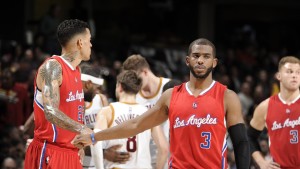
These weren’t the same old Capitals, they said. This year would be different, they said. Have faith in Washington, they said. This team and these players would finish the deal, they said. The Capitals would win a Stanley Cup, they said.
And yet, here we are, in the same position we were in years past, questioning what went wrong in Washington and what can be changed for the future. And yet, maybe the Capitals have passed the point of no return, blowing their best chance to date at finally getting over the hump.
This year, the Capitals had the best season in hockey, amassing 120 points and 56 wins en route to the Presidents’ Trophy and home-ice advantage throughout the playoffs. For a time, they even flirted with NHL records in points (132) and wins in a 70+ game season (62). The points record is held by the 1976-77 Montreal Canadiens; the wins record resides in Detroit with the 1995-96 Red Wings. The Canadiens won the Stanley Cup in 1977 while the Red Wings lost to the Avalanche in the 1996 Western Conference Final. The 2015-16 Washington Capitals wouldn’t even get that far.
In hindsight, the first harbinger of trouble in the Caps’ truncated playoff run was their first-round series against the Flyers. Washington jumped out to a 3-0 lead in the series before dropping games 4 and 5. The game 5 loss stands out in particular because the Capitals outshot the Flyers 44-11… and lost 2-0. The team would take game 6, but the damage had been done. The league’s best team was proven vulnerable.
After advancing over Philly, the Capitals would face the Pittsburgh Penguins in the next round. The series was competitive and riveting; five of the six games were decided by one goal and three of six games went to overtime. The first game was one of those overtime tilts, and the Capitals won it on this T.J. Oshie goal that almost didn’t make it across the goal line:
only angle that shows as if puck crosses line completely pic.twitter.com/UkuYrPGFfe
— Stephanie (@myregularface) April 29, 2016
Game 2 also went down to the wire, with Eric Fehr’s goal at 15:32 of the 3rd period giving the Penguins a 2-1 victory. A 3-2 win in Game 3 put the Penguins up 2-1, and Pittsburgh would take a 3-1 series lead on the strength of this overtime goal from Patric Hornqvist at the end of Game 4:
Hornqvist gets the OT winner and pushes the Caps to the brink of elimination pic.twitter.com/o49pwRWUEP
— Pete Blackburn (@PeteBlackburn) May 5, 2016
Game 5 saw the series return to the Nation’s Capital and the Capitals win 3-1 to force a Game 6. In that game, Pittsburgh would pull out to a 3-0 lead and hold a 3-1 advantage going into the third period. At this point, Capitals fans must have been simultaneously thinking the same thing: “Here we go again.” However, this team was supposed to be different, the squad to avenge the losses of the Capitals’ past.
And while they couldn’t avenge those past losses just yet, the Capitals were able to avenge their bad start and tie the game at three with goals from Justin Williams and John Carlson. This one would also go to an extra period; would the outcome be different for this year’s Capitals?
We got our answer at 6:32 of the first overtime period. Nick Bonino scored this game-winner on assists from Carl Hagelin and Phil Kessel to win the series for the Penguins and send the Capitals golfing:
ICYMI: Nick Bonino’s overtime goal eliminated the Washington Capitals in Game 6. #StanleyCuphttps://t.co/yJJKOw4MKQ
— NHL on NBC (@NHLonNBCSports) May 11, 2016
Here’s the question, though: what happened? Why didn’t things change from prior years?
First of all, the Capitals didn’t choke. I say that mainly because I absolutely hate the use of the word in sports. The amount of proverbial or actual “choking” that goes on in sports is much less than you would think, especially if you only get your news from those who refuse to look at the facts. That being said, the Capitals’ failure does represent a rather enormous missed opportunity, one that may haunt the organization for years to come.
This is why: Alex Ovechkin isn’t getting any younger. At 30, he’s the best player in the game of hockey, but he’s also coming into the twilight of his prime. Wayne Gretzky’s play began to decline around the age of 31; that isn’t meant to compare Ovie to the Great One, but it does show the mortality of NHL players, especially as the physicality and energy of the game takes a toll on their aging bodies.
Another reason why this is such a big disappointment is that the team is built to win in the postseason. Yes, Ovechkin is the best player in the game, but goaltender Braden Holtby might be the best netminder in hockey right now. Holtby is a nominee for the Vezina Trophy, annually given to the best goaltender in the NHL. One of the major keys to victory in the playoffs is having a solid, consistent presence in net, and the Caps have one of the best goalies you could ask for.
And while he gave up four goals in the team’s final defeat of the season, Washington’s elimination can hardly be blamed on him. By Goals Against Average, total saves, and save percentage, Holtby was the best goalie in the playoffs. While other netminders had better and more efficient statistics, they didn’t have to deal with an unceasing barrage of shots in their general direction; Holtby did. Even though he didn’t get the results to match his play, he is hardly the reason the Capitals are going home so early.
Are the Capitals cursed? It’s difficult to say; they definitely are far from lucky. The comparisons between them and the Clippers and, more specifically, Alex Ovechkin and Chris Paul, are stunning. Neither player has made the Conference Finals of his sport, and neither star is at fault for his team’s repeated misfortune.
That being said, the Capitals must recover quickly from this defeat. They’ve gone down time and time again early in the playoffs, so coming back from bitter defeat at the end of seasons is nothing new for them.
However, it may be too late for the current version of the Capitals to seize the sport’s ultimate prize: the Stanley Cup.

